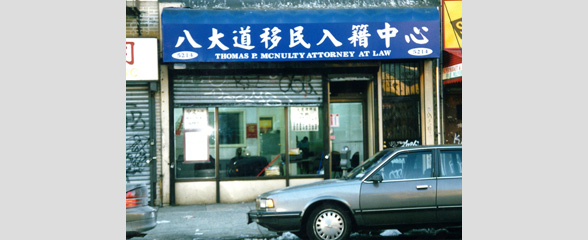 | In this interview, Po Yee Ung discusses her external world. She recounts her professional life: a Hong Kong career in business, and a New York City career in journalism. Ung evaluates Eighth Avenue potential as a business and cultural center for Chinese immigrants in Brooklyn, and its deficiencies as a community resource. Ung recounts instances of petty neighborhood crime. She describes the neighborhood aesthetic and real estate conditions. She talks about her affinity for Spanish-speaking sections of the neighborhood; particularly Hispanic food, customs, and people. Throughout the interview, Ung declines to answer questions that she views as too personal, or which may indicate her general whereabouts. Interview in Cantonese conducted by Ka-Kam Chui. | 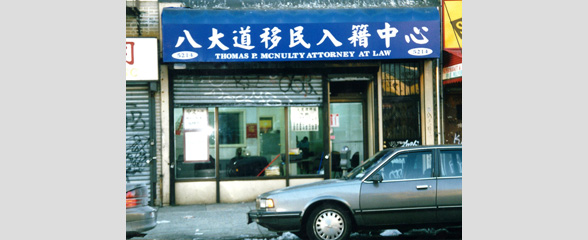 | In this interview, Chun Wai "Billy" Wong discusses his arrival to America and living in the Sunset Park neighborhood of Brooklyn as compared to his birthplace of Hong Kong, China. He cites reasons why he likes living in New York. Wong describes the culture and lifestyle of the working Chinese community; the differences between Mainland Chinese people and Chinese people from Hong Kong, the means in which the Chinese travel back and forth from the neighborhoods, shopping at food stores, and banking. Wong evaluates the economic changes in the two communities; new garment factories in Brooklyn, unionization, and health insurance in the factories in New York. Wong speaks about his job as a public school youth counselor; the characteristics of different groups of Chinese youth and problems with gang activity. He recalls his education as a computer programmer in the City University of New York colleges and work after graduation. He recounts his shift to study dance at Hunter College while working as a youth counselor. Wong talks about Chinese-American family life; including home ownership and celebrating various American holidays within their community. He also sees changes in Sunset Park as it becomes more populated. Interview conducted by Mary Lui. | 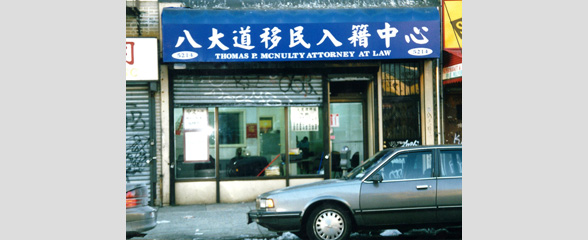 | In this interview Reverend Fook "Samuel" Wong discusses his life as an evangelical Baptist preacher in the Sunset Park neighborhood of Brooklyn. He talks about the innermost lives of the immigrant Chinese community he works with daily, detailing their "stages of immigration," as they assimilate to American culture. He details the domestic and financial challenges faced by overworked immigrants. Wong speaks on other issues, including corrupted youth, Chinese gang-related activities, the diversity of Brooklyn Chinatown, and ethnic tensions between the area Hispanic and Chinese residents. He also describes the Fuzhou people of China. Interview in Cantonese conducted by Mary Lui. | 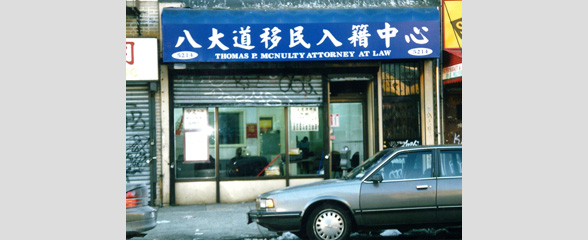 | In this interview, Guillermo and Norma Wong discuss their unique situation as a Chinese-Peruvian family living in a Chinese-Latino section of the Sunset Park neighborhood of Brooklyn; facing anti-Chinese slurs made by Latino residents, for example. They describe the ethnic makeup of their neighborhood, the politics of ethnic identity, racism, and discrimination. The Wongs recall the challenges of making it in America; finding housing, learning English, finding a job, and understanding American culture. Interview conducted by Gregory Ruf and Fabiana Chiu. | 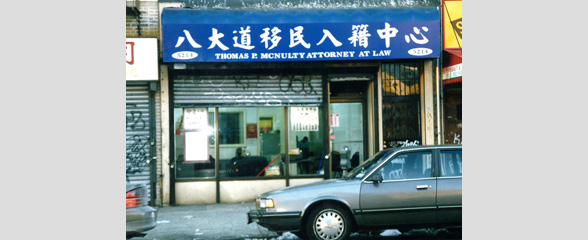 | In this interview, Yu Rong Zhu discusses his first sixty years of life, in which he witnessed the Japanese Invasion, the Chinese Civil War, and the Cultural Revolution. He reflects on the decision to move to America, his first two years in San Francisco, and his subsequent move to Brooklyn Chinatown (or the Sunset Park neighborhood of Brooklyn). Zhu compares the lifestyle, living conditions, and apartment rental situation in the Chinatown communities of Brooklyn and Manhattan. He considers neighborhood crime, inter-ethnic relations, and the difficulties of life as a Chinese immigrant. Interview in Cantonese conducted by Mary Lui. |




